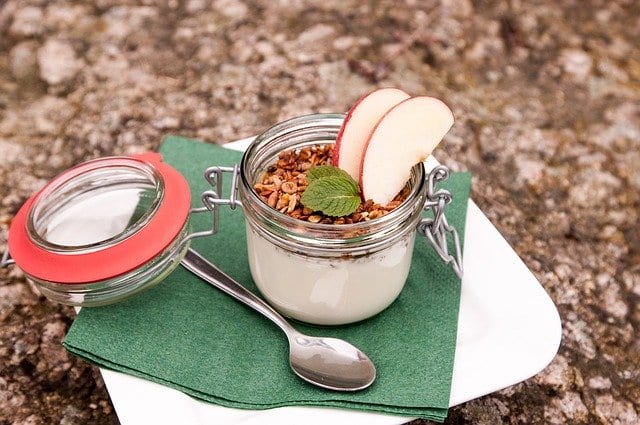Brushing and flossing is always important, but improving your dietary routines can go a very long way towards improving your oral health!

Everyone knows just how important it is to routinely floss and brush our teeth at least twice each day in order to maintain health, strong teeth; however a lot of people don’t realize just how equally important their diet is as an oral health factor.
Your mouth’s overall environment is constantly being changed by the food and beverages you consume, and there are countless unhealthy foods that contribute to bacterial growth and eventually even more serious issues like tooth decay and tooth enamel depletion. Every orthodontic patient also has to consistently keep the health of their gums in mind, because our gums help supply the vitamins that our teeth need to remain strong.
Every orthodontic specialist will say the same thing in that diet is always a major factor in maintaining the health of teeth and gums, and this is one of the many reasons why we provide a health questionnaire to get a better idea as to where a patient currently is with their oral health regimen.
Below we’ll be going over 5 different dietary adjustments that orthodontic patients should keep in mind towards improving their oral health:
Sugar
It may seem somewhat obvious to a lot of people, but there are many different types of sugars that commonly contribute to the early onset of tooth decay. Tooth decay is something that is unfortunately a very common childhood oral health issue, and for the most part childhood tooth decay can be avoided by implementing just a few dietary adjustments.
Plaque is a very common dental term that you’ve more than likely heard about a lot, but there’s always a high likelihood that many kids and parents don’t quite fully understand what plaque actually is. Plaque is the very common buildup of bacteria that forms really quickly on a daily basis within our mouths, and usually plaque will build up on the fronts of our teeth and in between our gums. Flossing on a daily basis is so important because plaque that is left in between our teeth can lead to the buildup of tartar and eventually cause tooth decay.
What’s even worse than simply leaving plaque in our mouths is the common occurrence of mixing sugar with plaque, and this is because this combination can quickly become acidic and lead to tooth enamel wearing. The biggest culprit of this type of oral health issue is soda and other sugary beverages, because sodas actually contribute to tooth decay more than any other food substance.
Cakes and cookies don’t help either when it comes to protecting your teeth from tooth decay, but it can always go a very long way to find healthier soda alternatives to protect your teeth from potential decay!
Water
Increasing your water intake can always go so much further than simply being a healthy soda substitute, and this is because water does the best job at thoroughly washing away the many acids and sugars that are left in our mouths. A lot of us understand how it’s important to drink water on a regular basis, but we consistently forget just how much water we need on a daily basis!
When we forget to drink enough daily water we are putting ourselves in the unfortunate situation to potentially experience dry mouth, which is not good for oral health due to saliva being our natural remedy to deal with bacteria and leftover food particles. Drinking water is always an effective and easy way to keep bacteria buildup in check, but this means you have to simply remind yourself just how important water is each and every day!
Drinking an ample amount of daily water will also go a long way in terms of keeping your teeth in great shape, and this is because it will help your body to more efficiently process minerals and vitamins that keep your bones strong.
Phosphorus And Calcium
Phosphorus and calcium just so happen to be two of the most important minerals when it comes to maintaining healthy, strong teeth. The dental health properties of these minerals make it really important for orthodontic patients to include calcium/phosphorus-rich foods in their daily dietary regimens.
All of us know how calcium is good for our bones, and this includes our teeth and jaw bones too. Phosphorus is also a really important mineral when it comes to bone health as well.
It’s understandable that you might not be quite sure which food products you should eat in order to obtain adequate amounts of calcium and phosphorus on a daily basis, so below are some of our suggestions.
For calcium you should consider the following:
- Dairy products (yogurt, milk, cheese, etc.)
- Broccoli and other leafy vegetables (spinach, kale, okra, etc.)
For phosphorus you should consider the following:
- Seafood
- Turkey/Chicken
- Nuts/Seeds
- Whole grains
- Soy
- Lentils
Vitamin C
It’s also always important for orthodontic patients to highly consider their entire mouth and not just their teeth when it comes to making dietary adjustments, and this particularly pertains to gum health.
Gingivitis is a serious gum issue that can lead to even more concerning gum disease problems, and this is something that everyone should truly try to avoid! Vitamin C just so happens to be one of the most effective vitamins when it comes to protecting people’s mouths against gingivitis, and it also helps in terms of improving the strength of your mouth’s soft tissues.
Vitamin C is in abundance within citrus fruits and juices, and it’s also really potent in potatoes, broccoli, strawberries, brussel sprouts, peppers and much more. Just remember that you’re always going to want to wash down citrus juices with water so the acidic properties of the juices don’t sit in your mouth for too long!
Potassium
The final dietary adjustment that we’re going to discuss within this list is potassium, and the best thing that potassium does for orthodontic patients is lower their blood’s overall acid levels. It’s important to understand that calcium levels can drop when a person’s blood supply is too acidic, and this can have a detrimental effect on your teeth.
Regular potassium consumption can help you to be more rest assured that your calcium levels are being maintained properly, and some of the common potassium foods include:
- Bananas
- Avocados
- Tomatoes
- Lima beans
- Cooked spinach
- Raisins
- Mushrooms
- Cucumbers
- Sweet potatoes
- And much, much more!
Reach Out To James Karpac Orthodontics To Learn More About How We Help Our Orthodontic Patients Through Suggesting Dietary Adjustments!
Diet is always a very effective way for orthodontic patients to better maintain the overall health of their gums and teeth throughout treatments. The above dietary adjustment advice is always even more important for people who are wearing braces or Line-M-Up™ because food can rather easily get caught within brackets, and bacteria buildup is common when patients don’t regularly and thoroughly clean their invisible aligners.
All of us at James Karpac Orthodontics want to provide our patients with beautiful, lasting smiles, but we also want to instill healthy habits that will last a lifetime just like their treatment results.
So always feel free to reach out to us online or call us at 614-766-0330 (Dublin office) or 614-471-6355 (Gahanna office) to get in touch with our team and schedule your initial consultation!

